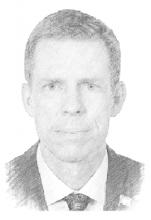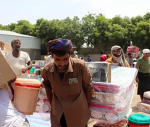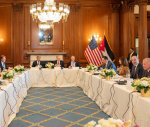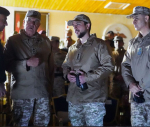You are here
World Humanitarian Day: Honouring women humanitarians
Aug 18,2019 - Last updated at Aug 18,2019
Today, we commemorate World Humanitarian Day, honouring aid workers, who risk their lives to assist others in emergencies around the globe.
Each day, over half a million humanitarian workers, almost 40 per cent of them women, stand on the front lines of war and disaster, braving dangers and overcoming challenges to deliver assistance to millions of women, children and men in need.
On this day in 2003, the Canal Hotel in Baghdad, which served as the Headquarters of the United Nations in Iraq was bombed. This senseless act killed 22 people, including Reham Al Farra, a 29-year-old Jordanian who was working with the UN Office for the Coordination of Humanitarian Affairs. Today we remember and honour Reham and the 21 other humanitarians who died in this tragedy.
Since then, over 4,500 humanitarians have been killed, injured, detained, kidnapped or otherwise prevented from carrying out their life-saving work. That is an average of 280 aid workers attacked in a year or nearly one each day.
Tragically, these statistics remain shamefully high. Last year saw the second highest number of attacks on aid workers on record: 405 humanitarians attacked, 131 killed, 130 kidnapped and 141 wounded.
On this 10th anniversary of World Humanitarian Day, we celebrate the contribution of women humanitarians. We use this day to raise awareness of the heroes, including the many here in Jordan, who work to make sure those in need are provided with assistance and protection.
The United Nations in Jordan will continue to work with the government, non-governmental organisations and civil society, including women-led organisations. The UN will continue to support the empowerment of women, including advocating for their strengthened participation in leadership roles, including in humanitarian action.
Engagement of women in humanitarian response makes sense. It helps to make sure women are included in all stages of the humanitarian cycle, improving the equitable and effectiveness of assistance. It also improves the humanitarian response to gender-based violence, which increases during emergencies.
While we honour those who have sacrificed, today also offers an opportunity to highlight the contribution member states make in supporting humanitarian action. In this regard, Jordan is a role model for its generosity. The Kingdom, in which one out of 14 people is a refugee, provides hundreds of thousands of them a safe-haven, assistance and protection.
As UN Resident and Humanitarian Coordinator, I have witnessed first hand the efforts made by Jordanian officials and aid workers as well as ordinary citizens to welcome and assist vulnerable Syrians who have fled into Jordan. Over the past three years, I have visited refugee camps and settlements as well as many clinics, care centres and safe spaces for women and children. These places provide a lifeline to refugees and the communities that host them throughout Jordan. In these visits, I have been impressed by the dedication and compassion of many Jordanians, with women often at the centre to care and protect refugees.
The writer is the UN Resident and Humanitarian Coordinator in Jordan. He contributed this article to The Jordan Times













